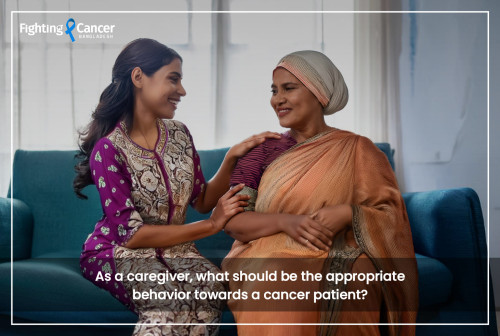
Caregiver is a small word, but its impact on a cancer patient’s life is endless. They provide unpaid care and assistance throughout the journey of a cancer patient.
Who is a caregiver?
A close buddy, like a family member or friend, plays the role of a caregiver. A cancer patient mostly receives care at home. Caregivers' roles are very challenging because they need to provide both medical and non-medical assistance.
A cancer patient’s journey is tough and very sensitive. Besides the physical care, a caregiver remains an emotional pillar. They maintain the doctor's communication and financial issues. They closely monitor a cancer patient’s overall condition.
Role of a caregiver
A caregiver’s responsibility starts during a cancer patient’s treatment and continues after treatment. The role changes with cancer progression. They provide mental support and help with daily activities. A caregiver tries to do all these things with honesty and safety.
As the disease condition and patient’s physical status vary from one another, The role of a caregiver also varies, but the core responsibilities are the same. Taking care of your loved one is not easy, but some key points can help you make it easier and better.
Start talking casually:
At the very beginning, you may feel confused about what to say or how to say it. Start a casual conversation and try to understand how they feel or think. Assure the cancer patient that you are always there to listen to him.
Sometimes, a cancer patient doesn’t want to talk about his illness and prefers to remain silent. You need to understand and shouldn’t take it personally.
Clear communication:
Don’t guess anything about their feelings or needs; ask and listen to them. A caregiver may consider some things essential for a cancer patient, but the patient may not need them, and vice versa. So, clear communication is essential.
Honest and sensible:
Cancer destroys a patient’s physical fitness and mental strength. Building a bond of trust and confidence with a cancer patient will create a friendly environment. A cancer patient will feel a little bit relaxed despite his stress, and he will share his thoughts with you. Don’t hide anything. Share the positive things as well as the negative impacts of his health condition.
Seek help:
As a caregiver, you have some limitations. The caregiver and the cancer patient should acknowledge this. When needed, ask for help from a cancer patient, and this will reduce the pressure of feeling dependent.
Promote freedom:
Let a cancer patient make some decisions of his own. It will help them to feel that there is some control in their lives. Cancer not only affects a patient but also greatly affects a caregiver. The journey of a caregiver is not easy. So, as a caregiver, don’t forget about self-care. Don’t be stressed. Stay active, feel relaxed, and boost your mind.

